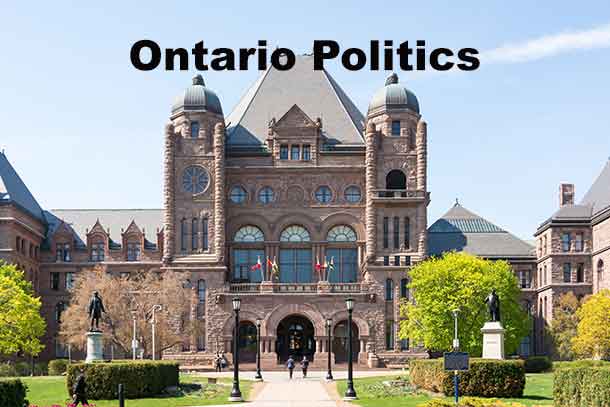 THUNDER BAY – OPINION – Ontario’s 2015 budget, like those of years past, needed a concrete plan to get government finances on a sound footing. Yet again, the budget failed to deliver. Instead, the government continues to delay the tough decisions while doing nothing to enact policies that improve the economic environment and help foster long-term prosperity.
THUNDER BAY – OPINION – Ontario’s 2015 budget, like those of years past, needed a concrete plan to get government finances on a sound footing. Yet again, the budget failed to deliver. Instead, the government continues to delay the tough decisions while doing nothing to enact policies that improve the economic environment and help foster long-term prosperity.
With respect to the broad strokes, not much has changed since last fall’s update. This is problematic for a host of reasons, including the concerns of credit rating agencies and a recent study finding Ontario’s fiscal policies are unsustainable and may prompt further credit downgrades and higher interest payments.
The government still plans to balance the budget in 2017/18 by slowing spending growth while hoping revenues catch up to close the gap. Specifically, the government is proposing to hold total spending growth to an average of 1 per cent a year (from 2015/16 to 2017/18) while expecting revenues to grow at 4.3 per cent annually.
If that sounds like wishful thinking, you’re probably right. After all, the budget contained no major spending reforms and/or reductions.
Yet the government trumpeted the results of its so-called “Program Review, Renewal, and Transformation,” a self-described “fundamentally new approach to multi-year planning and budgeting.” In reality, this exercise produced just $250 million in “savings” in 2014/15 – or 0.2 per cent of all program spending. Small potatoes in its grand budgeting scheme.
In addition, whatever savings were made are being offset by new spending. For instance, the budget proposes to increase corporate welfare spending through a “jobs” fund (an extra $200 million) and renew funding for a youth “jobs strategy” ($250 million over two years).
Another reason that it’s hard to feel reassured by the government’s plan is that annual deficits have been growing – not shrinking – over the past three years (2012/13 to 2014/15) from $9.2 billion to $10.5 billion and then to $10.9 billion.
Now, it’s supposed to gradually fall until the budget is balanced: $8.5 billion in 2015/16, $4.8 billion in 2016/17, and zero by 2017/18.
All of this is from a government that used the budget to dubiously boast “success” in managing the compensation costs of government employees. The reality is that compensation spending by the Ontario government increased 47 per cent (from 2005/06 to 2013/14), outpacing the combined rate of inflation (15 per cent) and provincial government job growth (11 per cent) during the same time period.
In addition, Ontario government workers continue to receive 11.5 per cent higher wages, on average, than comparable private-sector workers in similar positions – on top of the higher benefits (pensions, earlier retirement, job security) that the government sector enjoys.
Even with the current “plan” to balance the budget, Ontario’s already high debt will shoot upward. By 2017/18, the debt will reach $320 billion, or more than double the amount ($157 billion) in 2007/08.
Just like a household, the government has to pay interest on debt, and growing debt will require larger interest payments: $13.2 billion in 2017/18 compared to $8.9 billion in 2007/08. And this is in a historically low interest rate environment, meaning interest payments could increase in the future.
By 2017/18, the government expects that nearly 10 cents of every revenue dollar collected by Queen’s Park will go to servicing past debt rather than public services that Ontarians care about or tax relief that improves the province’s tax competitiveness.
With Ontario now being one of the highest taxed jurisdictions in North America, there is a desperate need to improve provincial tax competitiveness. Rather than focus on this, the budget introduces legislation to create an “arm’s-length entity” to administer the unnecessary Ontario Retirement Pension Plan that will be funded by yet another major (payroll) tax increase.
Ironically, Finance Minister Charles Sousa titled this year’s budget “Building Ontario Up.” There’s probably no greater proof of that; Ontario’s 2015 Budget was an exercise in wishful thinking.
Charles Lammam is director of fiscal studies and Milagros Palacios is senior economist at the Fraser Institute.






